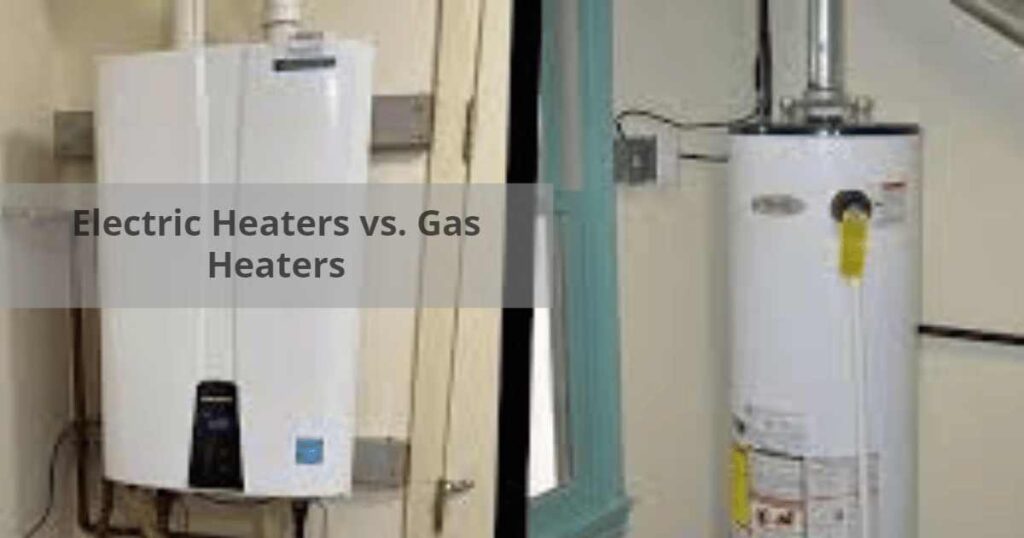Introduction:
Contents
Staying warm and cozy becomes a top priority as the colder months approach. When it comes to heating your home, you have several options, but two of the most popular are electric heaters and gas heaters. Both have their unique advantages and drawbacks, but choosing between them is a bit of a dilemma. In this blog, we’ll break down the pros and cons of each to help you decide which is best for your needs.
Electric Heaters: Convenient and Versatile
Pros:
1. Easy Installation: Electric heaters are incredibly easy to install. They don’t require any special connections or ventilation, making them a hassle-free option for homeowners. You simply plug them into an electrical outlet, and they’re ready to go.
2. Portability: Many electric heaters are portable, allowing you to move them from room to room as needed. This flexibility ensures that you can keep any part of your home warm without having to invest in multiple units.
3. Safety Electric heaters generally come with several built-in safety features, such as automatic shut-off if they overheat or tip over. This makes them a safer option, especially in homes with children and pets.
4. Low Initial Cost The upfront cost of electric heaters is typically lower than that of gas heaters. This makes them an attractive option for those looking to heat their homes on a budget.
Cons:
1. Operating Costs: Electricity is often more expensive than gas, which can lead to higher operating costs over time. If you’re using electric heaters to warm large spaces or for extended periods, the costs can add up quickly.
2. Efficiency Electric: heaters are usually less efficient at heating large spaces compared to gas heaters. They work best in smaller rooms or as supplementary heating sources rather than the main heating system for an entire home.
3. Environmental Impact: While electric heaters do not produce emissions directly, the electricity they use often comes from non-renewable sources, which can contribute to a larger carbon footprint.
You have to know which one is best for Atoll kitchen.
Gas Heaters: Powerful and Cost-Effective
Pros:
1. Cost-Effective Operation Gas heaters are known for their lower operating costs. Natural gas and propane are typically cheaper than electricity, making gas heaters more economical for long-term use.
2. High Efficiency Gas heaters are very efficient at heating large spaces. They provide a powerful and consistent heat output, making them ideal for larger rooms or entire homes.
3. Fast Heating Gas heaters can heat up a space much faster than electric heaters. If you need to warm up a room quickly, a gas heater is often the better choice.
4. Lower Environmental Impact Natural gas is a cleaner burning fossil fuel compared to coal or oil. While it’s not as clean as renewable energy sources, it produces fewer emissions and pollutants.
Cons:
1. Installation Complexity Installing a gas heater is more complex than an electric one. It requires proper ventilation, gas lines, and sometimes professional installation, which can increase the initial cost.
2. Safety Concerns Gas heaters carry a higher risk of hazards such as gas leaks, carbon monoxide poisoning, and fire. It’s crucial to have them installed and maintained properly, and to have carbon monoxide detectors in your home.
3. Portability Limitations Most gas heaters are not portable and are typically fixed in one location. This means you can’t easily move them from room to room as you can with electric heaters.
4. Maintenance Gas heaters require regular maintenance to ensure they operate safely and efficiently. This includes checking for gas leaks, ensuring proper ventilation, and routine cleaning.
Conclusion:
Choosing between an electric heater and a gas heater ultimately depends on your specific needs and circumstances. Here are a few considerations to help you decide:
- If you need a portable, easy-to-install heater for a small space or supplemental heat, an electric heater may be the best choice.
- If you’re looking to heat a large space or your entire home and want to save on operating costs, a gas heater is likely the better option.
Consider the space size you need to heat, your budget for both initial costs and ongoing expenses, and your priorities regarding safety and environmental impact. By weighing the pros and cons of each type of heater, you can make an informed decision that keeps you warm and comfortable all winter long.

